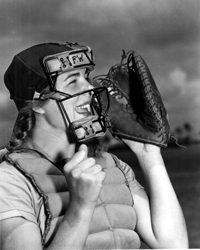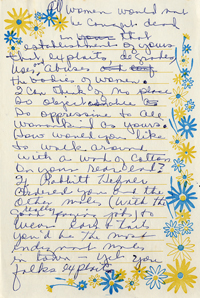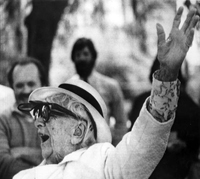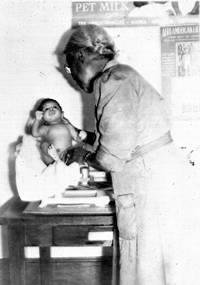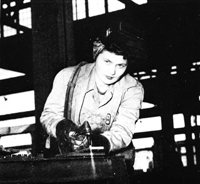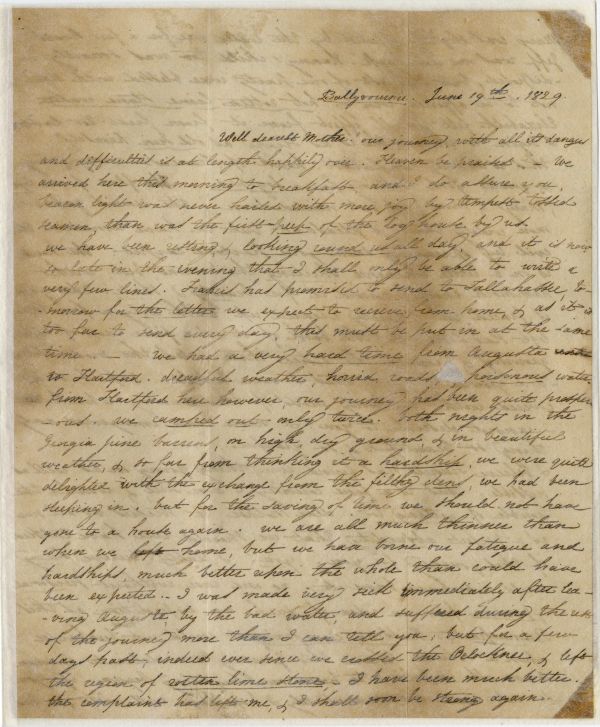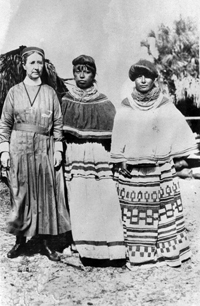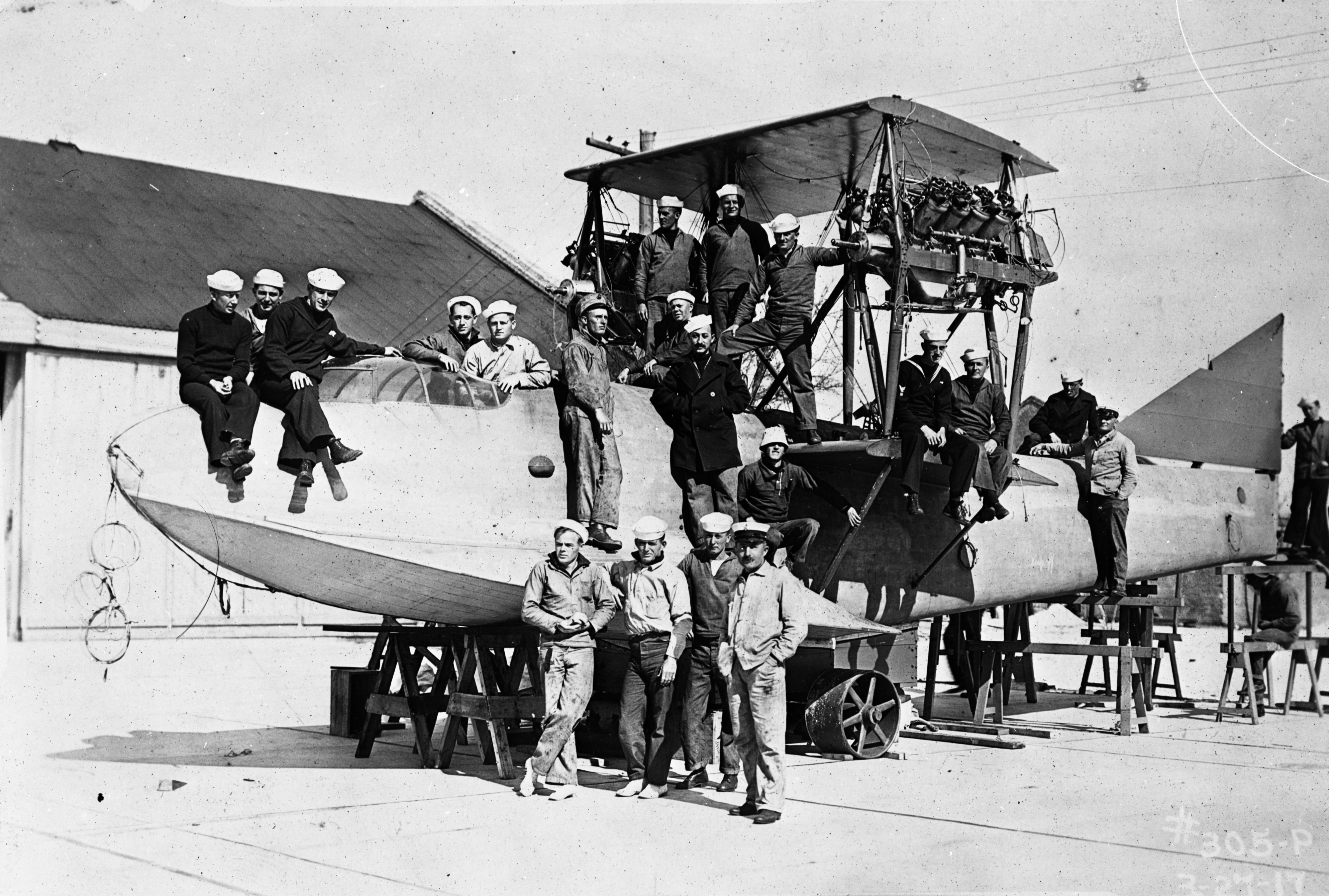Women's History Month
Resources From the State Library and Archives of Florida
In 1971, the United States Congress designated August 26 as Women’s Equality Day in commemoration of the 51st anniversary of the passage of the 19th Amendment. The designation commended women and women’s organizations, the historic triumph of women’s suffrage, and reminded the nation of the continued fight for equal rights.
President Jimmy Carter declared the first National Women’s History Week in March 1980. The President’s declaration came in response to efforts by communities, local school districts, and universities around the nation to recognize and celebrate the contributions of women in American history. These local efforts culminated in 1987 with the first Presidential Proclamation recognizing March as Women’s History Month.
Explore the contributions of women in Florida’s history
Educational Units
-
Mary McLeod Bethune, Educator
This educational unit focuses on the life and work of Mary McLeod Bethune, who founded the Daytona Normal and Industrial School for Negro Girls, now Bethune-Cookman College, in Daytona Beach. -
Lucreaty Clark, White Oak Basket Maker
This learning unit shows the basket making skills of Lucreaty Clark. Originally, these sturdy baskets were used to hold cotton and carry vegetables. -
Zora Neale Hurston, the WPA in Florida, and the Cross City Turpentine Camp
This learning unit focuses on Hurston’s work with the Works Progress Administration (WPA) in Florida. -
Seminole Doll Making
Seminole doll maker Mary B. Billie and her daughter, Claudia C. John, discuss the history and practices of Seminole doll making.
Photographic Collection and Photo Exhibits
-
The All American Girls Baseball League
This section is part of the exhibit Batter up! A Visual History of Baseball in Florida. -
Bedell Collection
This collection includes 126 prints of Deaconess Harriet Bedell working among the Seminole Indians in South Florida from 1933 to 1960. -
Roxcy Bolton: A Force for Equality
Roxcy Bolton figured prominently in the struggle for women’s rights in Florida. - Marjory Stoneman Douglas
- Search Marjory Stoneman Douglas in all collections.
- The Everglades in the Time of Marjory Stoneman Douglas Marjory Stoneman Douglas was Florida's premier environmental activist.
-
Images of Women's History in Florida
presents selected images depicting the history of women in Florida. -
Women Who Serve
This exhibit recognizes women in Florida who have served the state in numerous ways, from military service to medical care, to law enforcement, to fire and rescue services. - Search Women’s Rights in the Florida Photographic Collection.
Audio
-
Zora Neale Hurston
This page provides a compilation of the known Zora Neale Hurston sound recordings created while she worked for the Works Progress Administration (WPA) in the 1930s.
Video
-
Angela Davis
Civil rights leader Angela Davis speaks at Florida Agricultural & Mechanical University's (FAMU) Black History Month convocation. -
Bethune-Cookman College: A Rock in a Weary Land
This film provides an overview of the college and its individual departments, including the founding of the Daytona Normal and Industrial Institute for Negro Girls by Mary McLeod Bethune. -
Betty Skelton Day
includes footage of U.S. Feminine Aerobatic Stunt Flying Champion Betty Skelton in Tampa, Florida. -
Bicentennial Bethune
This film provides a brief summary of the life and achievements of Mary McLeod Bethune. It includes still images of the Daytona Normal and Industrial Institute for Negro Girls, Bethune-Cookman College and the Mary McLeod Bethune home. -
Care and Feeding of a Mermaid
shows how young women learned to perform as mermaids at Weeki Wachee Springs. -
Senator Beth Johnson
comments on a land acquisition amendment to the Florida Constitution designed to dedicate land for recreation and water conservation purposes. -
Their Game is Golf
provides a brief overview of the history of the Ladies Professional Golf Association (LPGA) and some of the top female golf professionals.
Exhibits and Documents
-
The Harriett Randolph Letter
describes the journey to Florida by early settlers in the Tallahassee area. -
Equal Rights Amendment
Selected letters received by Senator Bruce A. Smathers and Governor Reubin Askew on the Equal Rights Amendment. - Midwifery
- Pestilence, Potions, and Persistence: Early Florida Medicine Until the first decades of the 20th century, most of the children born in the South were delivered by midwives.
- Significant Documents Examples of certificates of registration for midwives practicing in Florida in 1942.
-
Minutes of Magdalene Union, Women’s Christian Temperance Union (WCTU), 1905
Minutes from a meeting of the WCTU in Tampa, Florida. The WCTU proved effective in helping to pass the 18th Amendment in 1919, which banned the sale, consumption and distribution of alcohol in the United States until 1933. -
Ratification of the 19th Amendment by the Florida Legislature, 1969
Although ratified by the United States Congress in 1920, Florida did not officially recognize the 19th Amendment until 1969. However, women in Florida have voted in every election since the passage of women’s suffrage.
Collections
-
Kingsley Papers
Kingsley was a wealthy planter and slave owner in Northeast Florida during the early 19th century. This collection contains documents relevant to the Kingsley plantation and estate. Kingsley’s heirs included his wife and former slave Anna M.J. Kingsley and their children. -
Pension Applications
These records represent pension applications submitted by Confederate veterans and their dependents to the State of Florida. The first Confederate pensions in Florida were authorized in 1885 and granted successful applicants $5.00 per month. The pension records below came from the widows of Confederate veterans.- John E. Best, submitted by Nancy Best in 1903, Holmes County
- John F. Smith Sr., submitted by Sarah Smith in 1907, Hamilton County
- F.B. Walker, submitted by Harriett Walker in 1906, Duval County
-
World War I Service Cards
This searchable database provides access to digital copies of enlistment cards for men and women from Florida, or residing in Florida at the time of their service in World War I. The examples below are for servicewomen.- Ruth Pearl Cone, Nurse, Army, Jacksonville
- Marjory Stoneman Douglas, Chief Yeoman, Navy, Miami
- Alice Teresa Doyle, Yeoman Third Class, Navy, Warrington
- Mary Woodson, Nurse, Army, Miami
Guides
-
Collections Pertaining to Women's History and Women's Issues from the State Archives of Florida
This guide lists collections relevant to women's issues and women's history housed at the State Library and Archives of Florida.
Additional Resources at the State Library and Archives
The State Library and Archives of Florida is located on the second floor of the R.A. Gray Building, 500 South Bronough Street, Tallahassee, Florida, two blocks west of the State Capitol. Our public research facilities are open from 9:00 a.m. to 4:30 p.m., Monday through Friday. The State Library and Archives is closed Saturdays, Sundays and on state holidays.
Researchers are encouraged to check with the State Library and Archives to verify operating hours and records availability prior to visiting. Directions are available in an online map.
Additional Resources at Your Library
If you need additional assistance locating information for your process paper and annotated bibliography, talk to the librarian at your school or public library or use the Ask a Librarian service. A librarian can help you locate primary and secondary resources that may not be retrieved using search engines such as Google.

 Listen: The Gospel Program
Listen: The Gospel Program